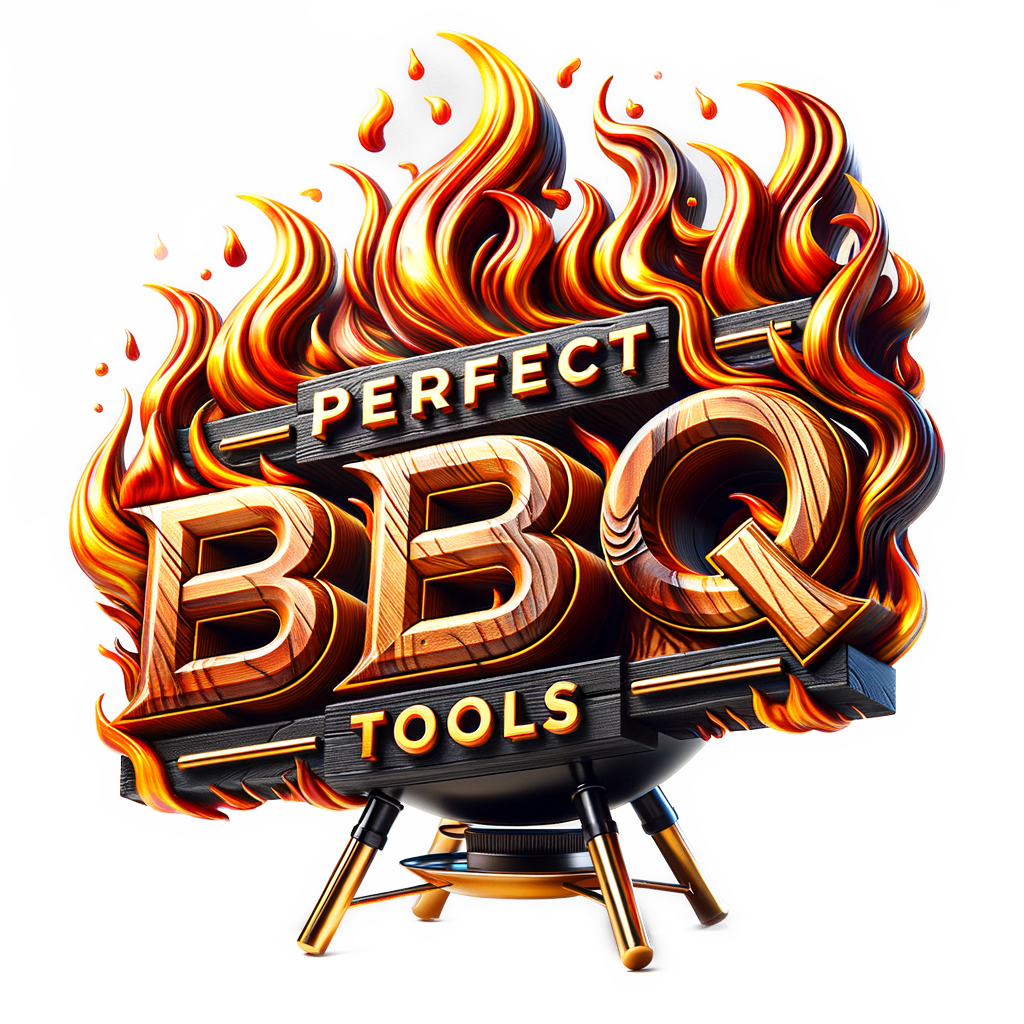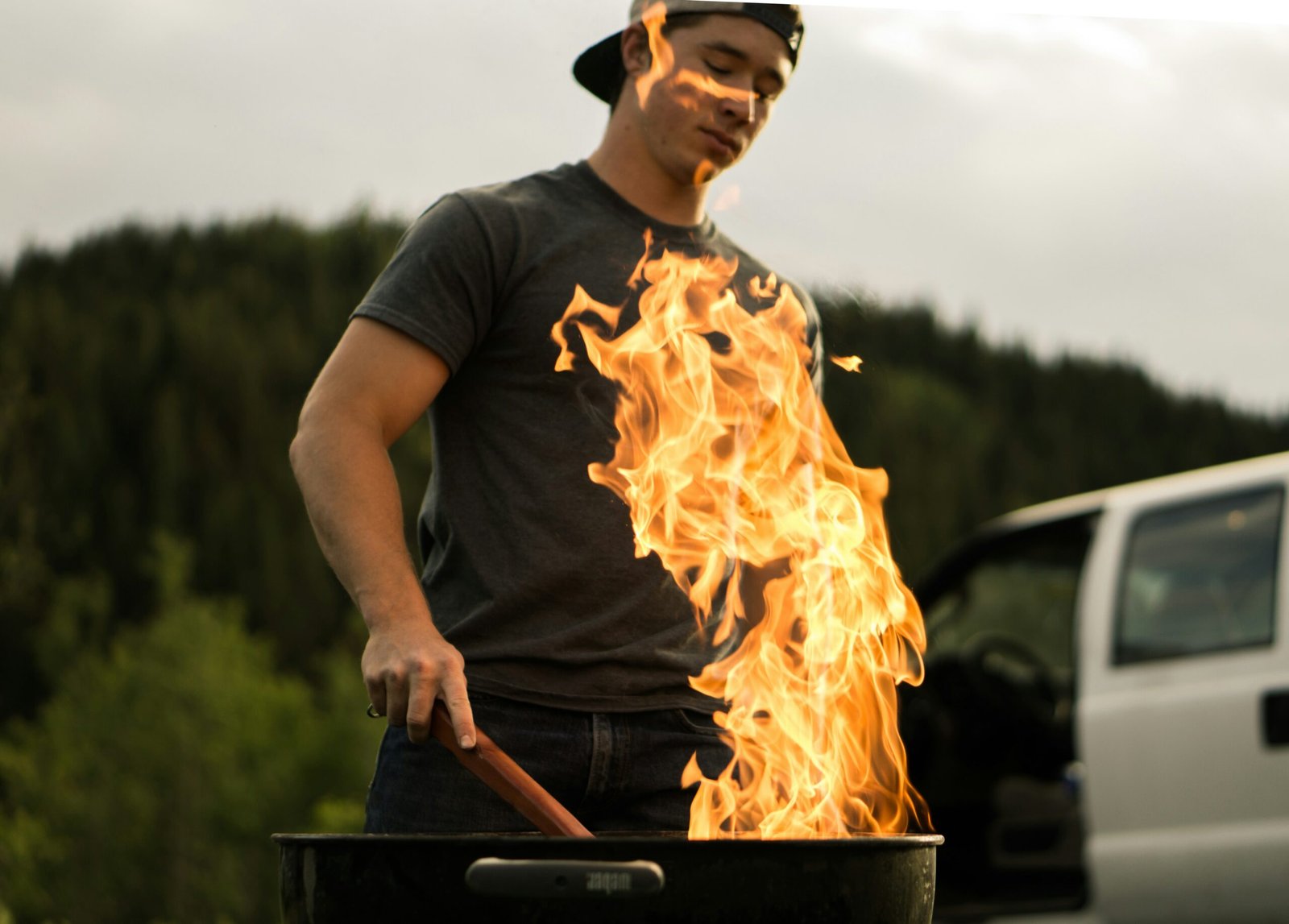Taking care of your grill is essential for ensuring its longevity and optimal performance. In this article, we will explore the best practices for grill maintenance. From cleaning and inspecting the components to protecting it from the elements, we will provide you with the necessary tips and tricks to keep your grill in top shape. By following these guidelines, you can enjoy countless delicious barbecues and make the most out of your outdoor cooking experience. So, let’s dive into the world of grill maintenance and discover how to keep your grill in tiptop condition.
Understanding the Importance of Grill Maintenance
Grill maintenance is a crucial aspect of ensuring the longevity and optimal performance of your grill. By regularly maintaining your grill, you can not only extend its lifespan but also enhance the taste of your grilled food. Additionally, proper maintenance helps you avoid potential health hazards associated with dirty grills. Taking the time to understand the importance of grill maintenance will allow you to fully enjoy the benefits of owning a reliable and safe grill.
Recognizing the impact of regular maintenance on grill lifespan
Regular maintenance plays a significant role in extending the lifespan of your grill. By conducting routine checks and addressing any issues promptly, you can prevent small problems from escalating into major repairs or even requiring a complete replacement. Simple tasks such as cleaning the grill grates, inspecting and cleaning the burners, and maintaining the heat shields can significantly contribute to extending the lifespan of your grill.
Noting the effects on food taste
Grill maintenance directly impacts the taste of the food you cook. Regular cleaning of the grill grates ensures that no residue or leftover food particles interfere with the flavor of your grilled creations. By keeping the grill clean and well-maintained, you can enjoy the true taste of your favorite dishes without any unpleasant aftertastes or burned flavors.
Avoiding potential health hazards
A dirty grill can become a breeding ground for bacteria and other harmful pathogens. When food drippings accumulate and are not properly cleaned, they can lead to cross-contamination and pose a risk to your health. Additionally, the buildup of grease and residue can create a fire hazard. By regularly maintaining your grill, you reduce the risk of foodborne illnesses and ensure a safe cooking environment for you and your loved ones.
Knowing Your Grill’s Components
To effectively maintain your grill, it is crucial to familiarize yourself with its various components and understanding their functions.
Familiarizing yourself with the grill parts
Grills consist of several essential components, including the grill grates, burners, heat shields, venturi tubes, and the ignition system. Understanding how these parts work together will enable you to perform maintenance tasks effectively and troubleshoot any potential issues that may arise.
Understanding each part’s function
Each grill component has a specific function that contributes to the overall grilling process. The grill grates provide the cooking surface for your food, allowing for those desirable grill marks. Burners serve as the heat source, while heat shields protect the burners and distribute heat evenly. The venturi tubes regulate the flow of gas, ensuring efficient combustion. Lastly, the ignition system allows you to start the grill with ease. Gaining an understanding of these functions will aid you in effectively maintaining each component.
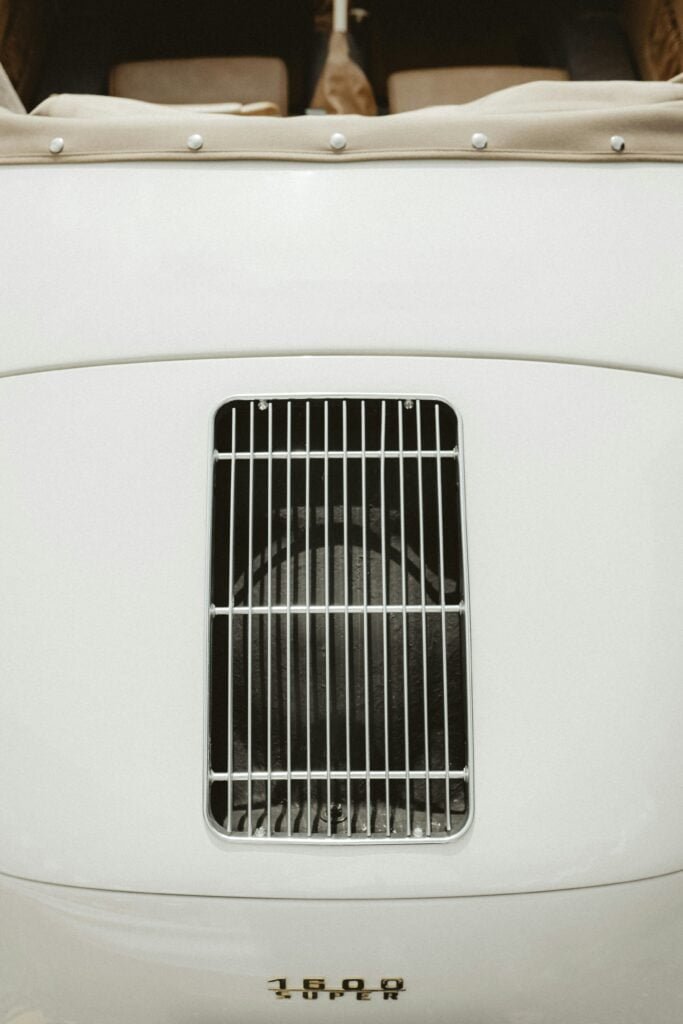
Maintaining Grill Grates
The grill grates play a vital role in the cooking process, and regular cleaning is crucial for optimal performance.
Tips for regular cleaning
Cleaning your grill grates after each use is essential to prevent the buildup of grease and food residue. Start by preheating the grill to loosen any stuck-on debris, then use a grill brush to scrub the grates vigorously. Once the grates are clean, wipe them down with a damp cloth or sponge. Additionally, periodically deep clean your grates by soaking them in a mixture of warm soapy water and scrubbing thoroughly.
Using the right cleaning tools
When cleaning your grill grates, it is important to use the right tools. Opt for a stainless steel bristle brush or brass wire brush, as these materials effectively remove stubborn debris without scratching the surface. Avoid using harsh abrasives or metal brushes with bristles that can break off and find their way into your food.
Choosing the right cleaning solutions
For regular cleaning, mild dish soap and warm water are sufficient for removing grease and grime from the grill grates. However, for deep cleaning, you may require stronger solutions such as a vinegar and baking soda paste or a commercial grill cleaner. Always ensure that you thoroughly rinse the grates after cleaning to eliminate any residue from the cleaning solutions.
Cleaning the Burners
The burners are the heart of your grill, responsible for generating the heat needed to cook your food to perfection. Proper maintenance of the burners is crucial for optimal performance.
Understanding the importance of clean burners
Clean burners ensure efficient heat distribution and prevent any blockages that may affect the gas flow. When the burners are clean, they can produce an even flame, resulting in consistent cooking temperatures and better-tasting food. Neglecting burner maintenance can lead to uneven heat distribution, hot spots, or even complete burner failure.
Best practices for burner maintenance
To clean the burners, start by turning off the gas supply and allowing the grill to cool down completely. Remove the burner covers and inspect them for any blockages, such as spider webs or debris. Using a wire brush or a soft-bristled brush, gently clean the burners and remove any accumulated grease or residue. Ensure that all burner ports are clear before reassembling the grill.
Periodic checks for optimal performance
In addition to regular cleaning, it is important to conduct periodic checks to ensure the burners are operating optimally. Inspect the burners for any signs of damage or corrosion. Check the gas flow by turning on the burners individually and ensuring they provide a steady flame. If you notice any issues, such as weak flames or inconsistent heat, it may be necessary to replace the burners.
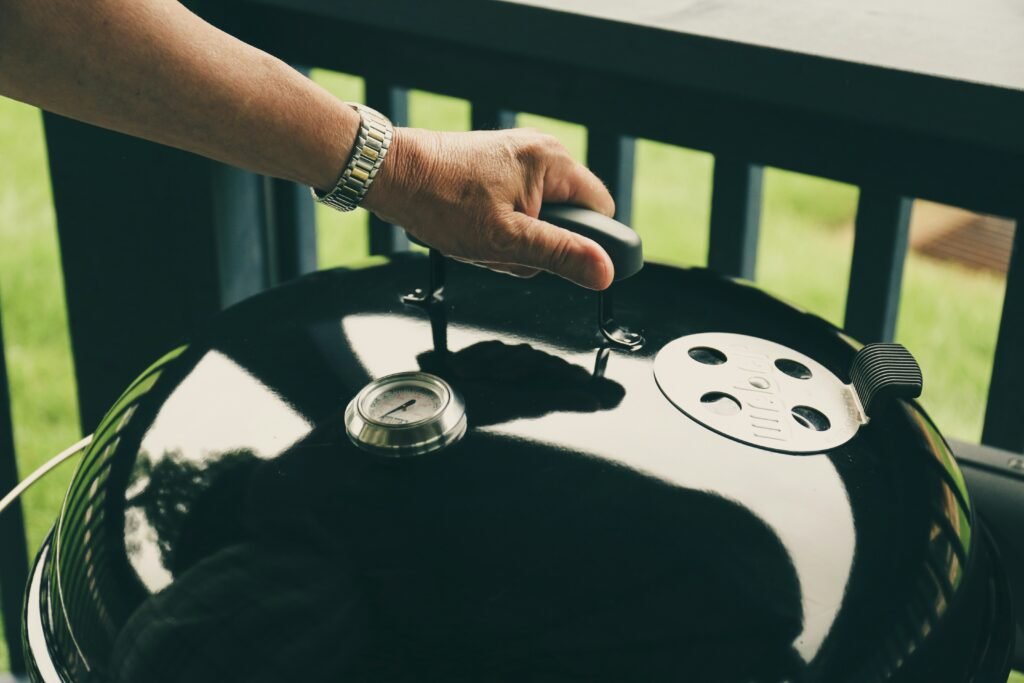
Maintaining the Heat Shields
Heat shields play a crucial role in protecting your burners and ensuring even heat distribution. Regular maintenance of these components is essential for a well-functioning grill.
Defining heat shields’ role
Heat shields are metal plates or trays positioned above the burners. They are designed to redirect heat, prevent flare-ups, and protect the burners from grease drippings. Without proper maintenance, heat shields can become clogged with grease and debris, hindering their effectiveness and potentially causing damage to the burners.
Preventing food drippings buildup
To prevent food drippings from accumulating on the heat shields, it is important to clean them regularly. After each use, scrape off any excess grease or residue using a grill brush or scraper. For a deeper clean, remove the heat shields and soak them in warm soapy water. Scrub them gently with a sponge or brush to remove any stubborn stains or debris. Rinse them thoroughly and allow them to dry completely before reassembling the grill.
Cleaning and replacing heat shields as needed
Over time, heat shields may deteriorate or develop rust. If you notice any signs of damage, it is crucial to replace them promptly. Damaged or deteriorated heat shields can affect heat distribution and increase the risk of flare-ups. Regularly inspect the heat shields for cracks, holes, or excessive corrosion, and replace them if necessary.
Inspecting and Cleaning the Venturi Tubes
Venturi tubes are responsible for regulating the flow of gas to the burners, ensuring efficient combustion. Regular inspection and maintenance of these tubes are essential for optimal grill performance.
Understanding the venturi tubes’ function
Venturi tubes mix air with the gas fuel, creating the right mixture for combustion. They play a crucial role in regulating the gas flow and maintaining a steady flame. If the venturi tubes become clogged or damaged, it can result in uneven flame distribution or even grill malfunction.
Ensuring proper gas flow
To ensure proper gas flow through the venturi tubes, start by turning off the gas supply and disconnecting the grill from the gas source. Inspect the tubes for any blockages caused by debris, spider webs, or corrosion. Use a pipe cleaner or a small brush to gently remove any obstruction. Additionally, check for any loose or damaged connections and ensure that the tubes are securely attached to the burners.
Observing safety precautions during cleanup
When cleaning the venturi tubes, always prioritize safety. Ensure that the grill is turned off and completely cooled down. Avoid using sharp or abrasive tools that can damage the tubes or cause injury. If you are unfamiliar with this maintenance task, consult your grill’s manual or seek professional assistance.
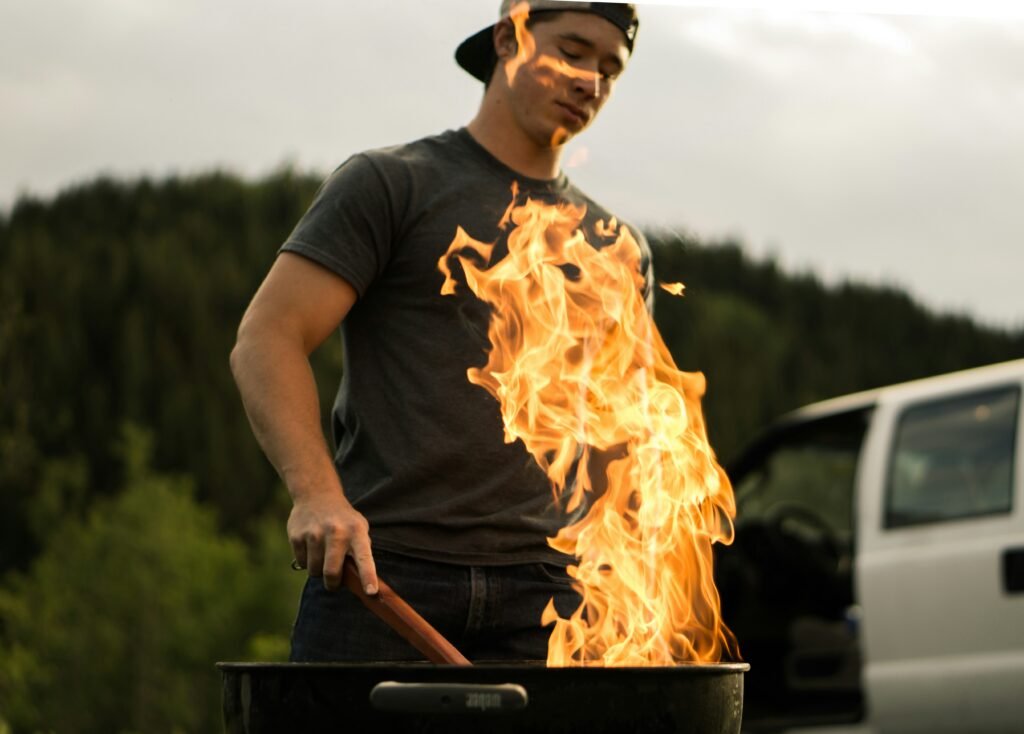
Proper Handling of Grill Ignition System
The ignition system allows you to start your grill with ease. Proper maintenance of this component ensures reliable ignition and a hassle-free grilling experience.
Maintaining the ignition switch
The ignition switch is the primary control for starting the grill. Regularly check the switch for any signs of wear or damage. If you notice any issues, such as difficulty in sparking or a weak spark, it may be necessary to replace the ignition switch. Ensure that the switch is clean and free of any debris that may interfere with its functionality.
Replacing the ignition battery as necessary
Many grills utilize a battery-powered ignition system. When the battery is low or depleted, it can lead to ignition failure. Check the battery periodically and replace it as needed to maintain reliable ignition. It is a good practice to keep spare batteries on hand, especially during peak grilling seasons or for longer cooking sessions.
Troubleshooting common ignition problems
In the event of ignition problems, there are a few troubleshooting steps you can take before seeking professional assistance. Ensure that the gas supply is turned on and that the fuel tank is not empty. Clean the ignition electrodes and ensure they are properly aligned with the burners. If you are unable to resolve the issue, consult your grill’s manual or contact a professional technician for further assistance.
Grill Exterior Maintenance
While it is crucial to focus on maintaining the internal components of your grill, do not overlook the importance of cleaning and maintaining the grill exterior.
Cleaning the grill exterior regularly
The grill exterior is exposed to various elements, including dirt, dust, grease, and even weather conditions. Regularly clean the exterior using a mild dish soap and warm water solution. Scrub gently with a soft cloth or sponge to remove any buildup of dirt or residue. Rinse thoroughly and dry with a clean cloth to prevent water spots or potential rust.
Using the proper cleaning solutions
Avoid using harsh chemicals or abrasive cleaning agents on the grill exterior, as they can damage the paint or finish. Stick to mild cleaners, or consider using grill-specific cleaning solutions recommended by the manufacturer. Always follow the manufacturer’s instructions to ensure the longevity of the grill’s exterior.
Preventing rust and corrosion
To prevent rust and corrosion on the grill exterior, it is crucial to dry it thoroughly after cleaning. Moisture or humidity can cause metal parts to corrode, leading to aesthetic damage and potential structural issues. Additionally, consider using a grill cover when the grill is not in use to protect it from the elements.
Regular Grill Inspection and Repairs
In addition to regular maintenance, scheduling periodic grill inspections is important to identify any potential issues and prevent major repairs.
Scheduling periodic grill inspections
Consider scheduling a professional grill inspection at least once a year or as recommended by the manufacturer. A professional technician can thoroughly inspect your grill, identify any potential issues, and perform necessary repairs or maintenance. Regular inspections can catch minor problems before they escalate, saving you time and money in the long run.
Professional grill repair options
If you encounter any significant issues with your grill, it is advisable to seek professional grill repair services. Professional technicians have the expertise and tools necessary to diagnose and repair complex problems. Whether it’s a faulty ignition system, burner replacement, or heat shield repair, professional assistance can ensure that your grill is restored to its optimal performance.
Doing minor repairs yourself
For minor repairs or maintenance tasks, you can often handle them yourself with the help of instructional guides or online tutorials. Simple tasks like replacing grill grates, cleaning burners, or tightening loose connections can be safely performed by a knowledgeable grill owner. However, always exercise caution, adhere to safety guidelines, and consult professional assistance if you are unsure or uncomfortable performing a particular repair.
Storing Your Grill Properly
Properly storing your grill when it is not in use is essential for ensuring its longevity and continued performance.
Covering your grill when not in use
When your grill is not in use, it is important to protect it from the elements. Use a grill cover specifically designed for your grill to shield it from rain, sun, snow, dust, and other environmental factors. A grill cover helps prevent rust, corrosion, and damage to the exterior finish, extending the lifespan of your grill.
Storing in a dry place
When storing your grill, choose a dry location that is sheltered from moisture and humidity. Avoid placing it directly on the ground to prevent moisture absorption. If possible, store the grill in a garage, shed, or other covered area to provide additional protection from the elements.
Winterizing your grill
For those in colder climates or during periods of extended non-use, it is crucial to properly winterize your grill. Start by thoroughly cleaning the grill, ensuring that all components are dry. Disconnect the gas supply and remove the propane tank or store it in a well-ventilated area to prevent potential leaks. Consider applying a layer of rust-proofing oil or a grill-specific protectant to further safeguard your grill during the winter months.
By following these best practices for grill maintenance, you can enjoy many years of delicious, perfectly grilled meals. Regular maintenance, cleaning, and inspections not only enhance the performance and lifespan of your grill but also contribute to the safety and enjoyment of your grilling experience. With proper care, your grill will continue to be a reliable cooking companion, providing countless memorable moments spent with family and friends.
